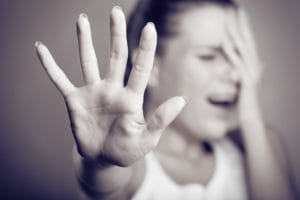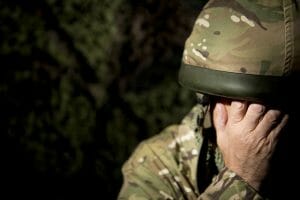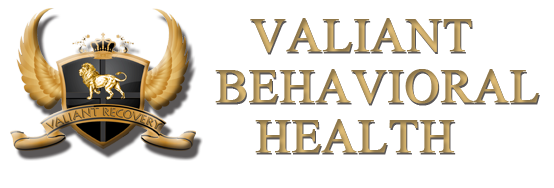When something traumatic, such as a shocking, scary or dangerous event happens, it triggers a vast array of emotions in a person. Furthermore, this fear triggers the innate “fight-or-flight” response which is the body’s defense mechanism. This reaction is typically meant to protect a person from harm. And nearly everyone will experience trauma and the activation of the “fight-or-flight” at some point.
However, most people typically recover from these symptoms and reactions after trauma. But when trauma is not dealt with, that trauma can eventually turn into something called post-traumatic stress disorder, or PTSD.
What is PTSD?
Let’s take an even deeper look into PTSD.
The condition has been known to exist at least since the early times of ancient Greece, and was referred to as “soldier’s heart” during that time. However, in recent years, we have started to learn more about the disease.

Post-traumatic stress disorder is a debilitating mental anxiety disorder that affects people of all ages, genders and races. It is the body’s psychological response to a traumatic experience and the emotions that follow an event such as that.
After a traumatic experience has occurred, the brain produces fewer endorphins – one of the chemicals in the brain that makes us feel happy. As a result, people who have experienced a traumatic event and are at risk for developing PTSD are feeling less happy as a result of the chemical reactions in their brain – or lack thereof.
Symptoms of PTSD
Typically, symptoms will begin to present themselves within three months of the traumatic event. However, it could be years before the disorder fully develops.
Symptoms of this mental disorder can actually change overtime, meaning not every single case is the same as the next and might not even be the same months down the road as it was when the symptoms were first noticed.
When someone suffers from PTSD, the areas of the brain that are associated with memory and emotions are affected. A healthy brain can decipher between memories from the past and present experiences. However, a brain affected by PTSD might not be able to determine the difference, therefore they might react to a current event because it reminds them of a past memory that was traumatic. Environments that are similar to their past event could trigger fear, anxiety and stress.
Symptoms of PTSD can include:
- Flashbacks to the traumatic event, which also causes other symptoms like sweating and/or a racing heartbeat
- Bad dreams
- Frightening thoughts
- Suicidal thoughts
- Staying away from objects, events, or places that are a reminder of the past traumatic experience
- Being easily startled
- Regularly feeling tense
- Difficulty sleeping – which could also be associated with the earlier symptom of bad dreams
- Outbursts of anger
- Loss of interest in previously enjoyable activities
And the list continues on, the symptoms don’t stop here. These symptoms and others can affect a person’s daily life, such as relationships, eating, sleeping, work, etc.
The above symptoms are a combination of the various categories, but the categories that PTSD symptoms are placed into include intrusive symptoms, avoidance/numbing symptoms, and arousal symptoms.
PTSD and Veterans
PTSD is something that is often talked about in conjunction with veterans who have served in the war. While veterans are not the only ones who suffer from PTSD, they do make up a large portion of people that suffer from the debilitating mental disorder.

PTSD is often seen in veterans because they are exposed to war and situations that a normal civilian might never be exposed to. They are also put under extreme amounts of pressure and stress, extended periods without their family, and exposed to situations that normal civilians are also not exposed to.
If you or someone you know is a veteran, be sure to pay attention to the possible symptoms of PTSD. Especially as a soldier who is always taking care of other people, it can be hard to reach out and say that you need help. But PTSD can lead to a lifetime of struggles if it is not properly dealt with. And if you do suffer from PTSD, there is help. There are options for treatment and coping mechanisms. Don’t wait.
PTSD and Substance Abuse
PTSD can be accompanied by depression and anxiety, but substance abuse and addiction are other things that commonly accompany it.
PTSD changes the chemistry in the brain in a very similar way that addiction and substance abuse do. This is another reason why these disorders often feed off of each other.
People who find themselves experiencing PTSD might feel the need to turn to drugs or alcohol to self-medicate as a means to overcome the fear, anxiety and stress that comes with PTSD. It is not uncommon for these two to co-occur in response to serious trauma such as an accident, death of a loved one, serious physical or sexual assault – as a child or adult –, natural disasters, and more.
Techniques for Coping
While we want to educate you on what PTSD is, how it happens and how to recognize the symptoms, we also want to take this opportunity to educate you on some coping mechanisms that can help you or someone you might know.
Here are some simple coping mechanisms for PTSD:
Get enough rest.
This one can be tough because PTSD can affect sleep by causing insomnia, bad dreams, or other sleeping issues. However, try to keep your sleep schedule as consistent as possible to help encourage healthy sleeping habits.
Set goals.
Your goals do not have to be monumental, in fact, they shouldn’t be. Set small, attainable goals and tackle them one at a time. This gives you a tangible way to track your progress and to feel good about yourself.
Eat healthy.
Like all other coping mechanisms, start small and keep it at a level that is attainable. But the food we put into our body also effects our emotions and hormones, so by improving your diet you can also improve your mental wellbeing.
Like any other disorder, PTSD can be hard to conquer. However, it is possible. You can get better, and without the use and abuse of drugs and alcohol.


